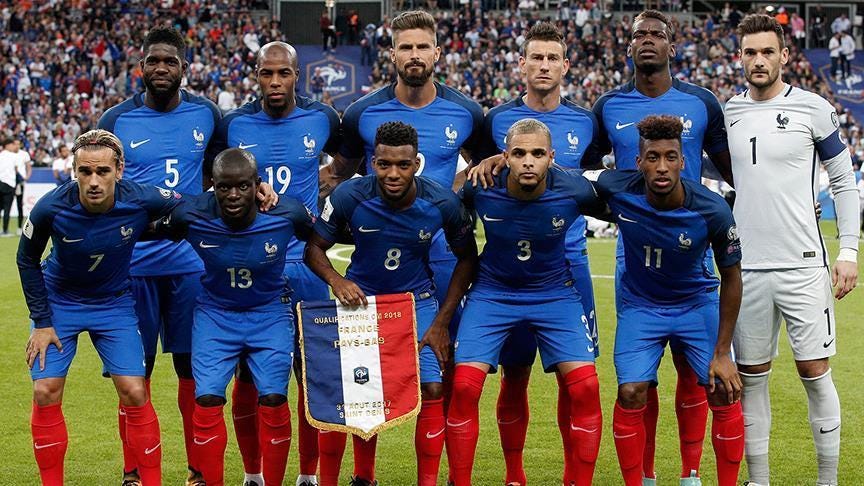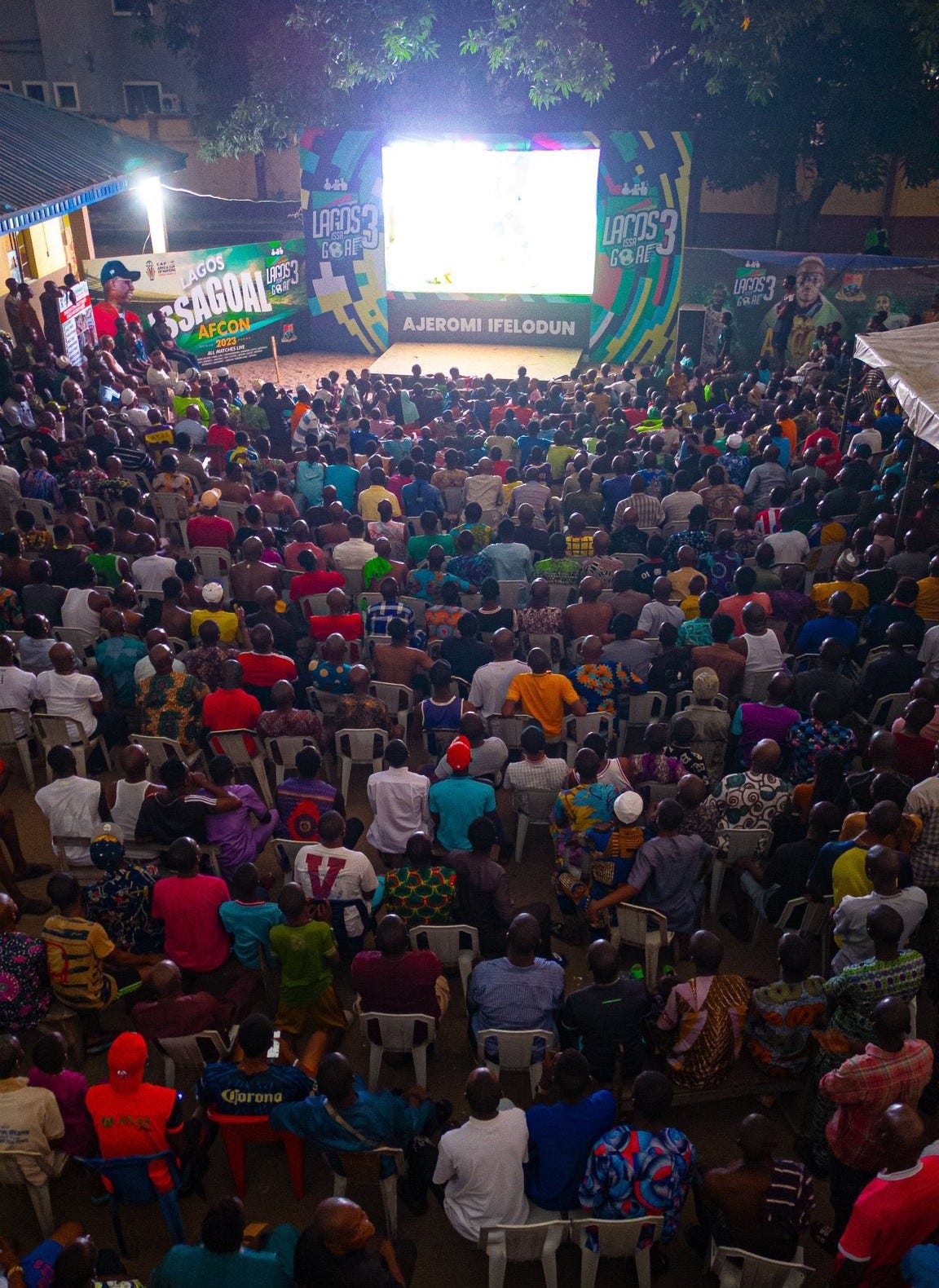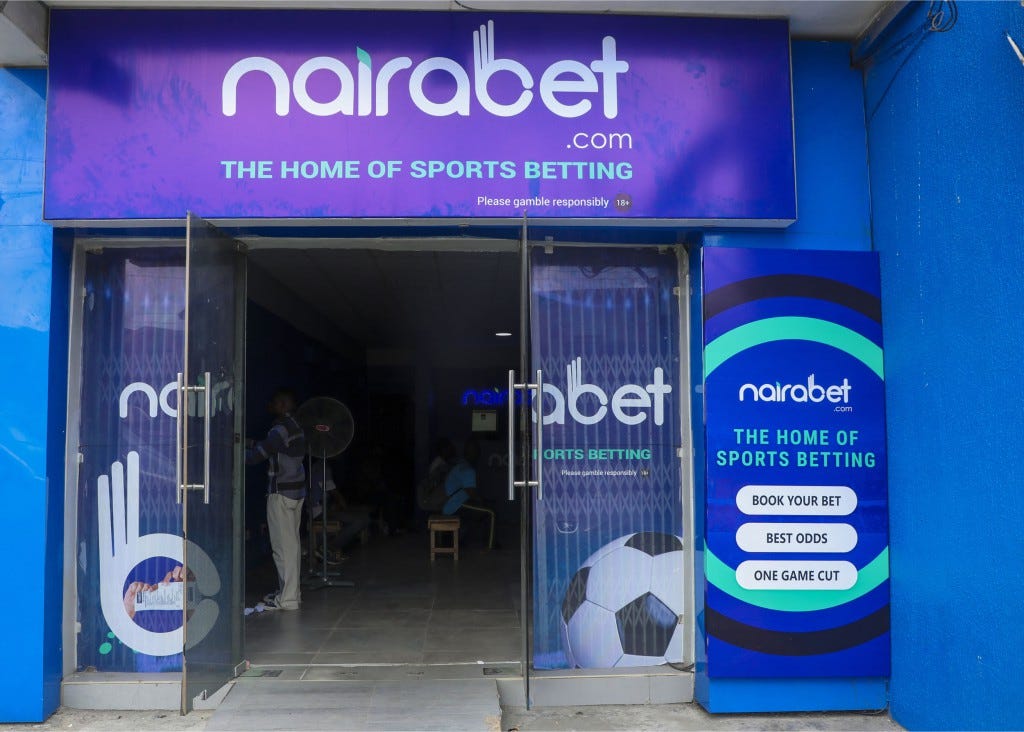Hey, Sheriff here!👋🏿
It’s been a while since my last email. I’ve been touching grass and watching football. But your favourite newsletter is back.
This week, we’re talking about football. Not the fact that Arsenal bottled the EPL but the billion-dollar industry football has created in Africa.
Let’s get into it.
When France won the World Cup in 2018, Trevor Noah joked that Africa had won the World Cup. He was wrong, but also right. Africa has a weird relationship with football.
Some of the best players in the world can trace their ancestry back to the continent. And they’re not many generations removed either. Kylian Mbappe is from Cameroon, and N’golo Kante is partly Malian. But neither of them had their claim to fame in Africa.

There’s a lot of potential, but not much kinetics in the African football scene. For years, African players have dominated sports while wearing European jerseys; all Africans could do was watch. And boy, do they watch with passion and devotion - but it’s not only the World Cup.
Every year, 276 million people in Sub-Saharan Africa watch the European Premier League. That’s over a quarter of a billion eyeballs. And most of these people don’t have cable TV. They watch the games in public viewing centres like this one 👇🏿, often brimming with heat and chatter.

One thing is clear - Africans love football, even though they only contributed $125 million to the global football revenue last year. And when you have half a billion eyes watching something with such passion, there’s a market waiting in there. This guy discovered it.
Akin Alabi, the king of Nigerian sports betting
Akin Alabi had a problem. He wanted to be rich but knew a regular job wouldn’t get him there. He’d tried many businesses before finding success with information marketing.
He figured out that people would pay good money for valuable information on different topics. So he’d research these topics, and package them in easy-to-digest media like books, tapes, and even seminars - then he’d sell them.
It worked and money started rolling in.
Then he visited the UK and saw a sports betting shop for the first time. He placed a bet on a football match and won double his money in less than an hour. He knew he’d found material for his next information product.
So, he returned to Nigeria and wrote a short book teaching people how to place bets on UK websites. The book was another hit, but he soon hit a snag - it was hard placing bets directly from Nigeria. So, they kept hitting him up and offering to send him money to place bets on their behalf instead.
Feeding a starving crowd
First, it was ten people, then a hundred, and then a thousand. Akin realized he was onto something, so he built a site to help Nigerians bet on games directly and called it NairaBet. Starting was easy, because he had a starving crowd.
Getting Nairabet off the ground cost roughly N200,000 ($150). He sent an email to everyone who’d reached out asking for his help, saying:
“You can now place bets on football games from Nigeria. Visit www.nairabet.com to sign up.”
Nairabet was simple - you visit, pick a football game, make a bet, and pay. If you win, good news. But if you don’t, till next time. It was the first in Nigeria, so it grew like wildfire.
At its peak, Nairabet made over $3m in revenue every month, with a 30% - 50% profit margin and Akin became a millionaire in no time. But he’d created an industry out of thin air - and it had everyone’s attention.
Investors came knocking with funding offers, but he preferred the sweet taste of majority ownership. For him, it was a simpler life.
And while his startup grew up on the internet, he did something contrarian that changed the game forever - he went offline.
The idea was simple yet, novel. Most people watch football in physical viewing centres, so why not make the betting experience physical too?
Armed with this insight, he created the agent model that blew Nairabet up - before agent banking became popular. Here’s how it worked:
Regular folks sign up to be Nairabet partners and set up a physical shop.
They get devices and promotional materials from NairaBet to help with placing bets and marketing.
They take bookings from customers and take a cut of all bookings each month.
Then they make payouts on Nairabet’s behalf when a player wins.
And this model was a hit.
With Nairabet shops, thousands of football fans turned into football entrepreneurs. Akin had kicked off a gold rush in African sports. One that was minting millionaires and fulfilling dreams. And in the wake of this…
A billion-dollar industry was born
Other players started circling in, and he soon had competition.
Nairabet’s success opened the floodgates to new companies that are even bigger than Nairabet itself:
Bet9ja turns over $10 million monthly.
BetKing is worth over $500 million.
Sportybet has over 80 million monthly visits.
Today, it’s a $2 billion industry - and growing. And now, these companies have started moving into the sport itself - building football clubs, stadiums, and sponsoring leagues.
BetKing sponsors the Kenyan Premier League, the founder of Bet9ja bought a club, Shola Akinlade of Paystack started Sporting Lagos, and Akin Alabi now runs a football club in Lagos.
It’s still early days, but who’s to say this isn’t the start of a booming sports industry on the continent?
If you’re a founder, here’s what you can learn from Nairabet
In the beginning, a hot market is better than a great product. Find a starving crowd before building a product.
Meet your customers where they’re at - selling offline is a good channel if they spend more time offline. It doesn’t matter if you’re a startup - just sell.
You can be venture-scale without being a unicorn. Word on the street is that Nairabet is a $100m+ company. That’s a 1,000,000x return on $100.
And that’s all for today.
Did you learn anything new or have an interesting thought?
Or you just thought this was fun?
Hit reply and let me know.
Till next week! 👋🏿





